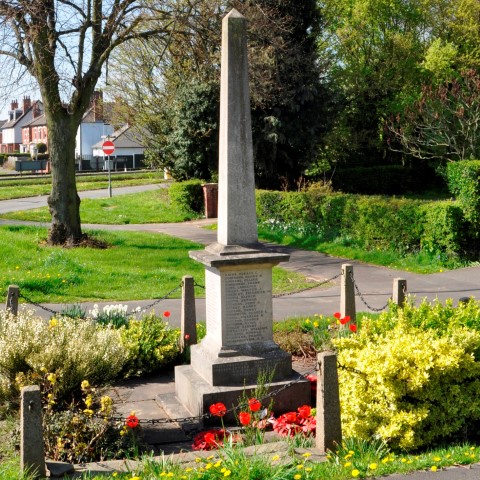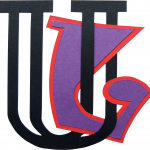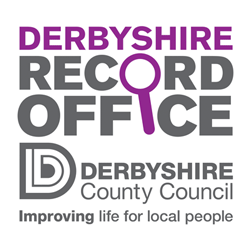A ‘Renaissance Woman’ – Mary Beilby (1935-2012)
If Mary Beilby, (who died on 20th September, 2012 at the Queen’s Medical Centre) had been born in the 16th century, she would have slotted perfectly into a Renaissance world where politics and literature rubbed shoulders with exploration; art and science.
In today’s world, the woman who excelled at ballroom dancing; gardening; knitting; everything musical and historical research; combining the whole with a lifelong commitment to socialism and trade unionism, alongside a career as a freelance journalist – was one of a kind.
In the words of Ockbrook and Borrowash Labour Party Chair, Philip Whitt:
‘She simply excelled at everything she did.’
Mary Beilby was born and brought up in Nottingham in 1935; marrying civil servant Alf in 1954. They had seven children and Mary worked part time as a journalist for a local News Agency.
She had lost her sight when the children were young, but surmounted her difficulties until faced with the tragic early death of husband Alf and ‘five children who were still dependent’
Here, Mary’s resilience and guts came to the fore and ‘I knew I would have to work full time at my occupation of journalism.’
So she began her career in earnest, writing to as many local media outlets as possible; including The Derby Telegraph:
‘I succeeded in obtaining offers of work and would be paid for any items that would be used.
The area I would be covering included my home town together with half a dozen or so small parishes, each with it own Council. This, I knew, would mean a fair amount of travelling, particularly in country areas and I would need to be far more mobile than I had in the past.’
Mary trained the family pet, Jessie, to be a guide dog and the two were soon familiar figures at Council meetings; Mary on the Press Bench, and Jessie under it, taking a lively interest in proceedings long before dogs in public life became familiar figures, courtesy of David Blunkett:
‘We had spent a long time at one particular Planning Meeting with Councillors rambling on at great length about nothing of special interest. One individual had bored everyone to death with his long-winded speeches until his own colleagues suggested to him that he shut up…. Jessie stood up under the Bench, turned to a more comfortable position; flopped down and let out a long groan.
‘I’ll second that,’ said the Councillor …’There is only one dog who has the courage to be honest.’
Mary went on to have a long and rewarding career in the profession ; a familiar figure to newsrooms in Derbyshire, she built up a reputation as a supporter of young journalists via her activities as an enthusiastic member of the National Union of Journalists.
She remembered the advent of two bright young reporters on The Derby Telegraph, called Steve Hall and Neil White and was delighted when they later became Editors of the paper.
Mary’s encouragement of young journalists was embodied by her work as Branch Secretary for 25 years of the Derby and Burton Branch of the NUJ where she regularly made a 40 mile round trip to attend meetings; sometimes waiving her expenses when she knew the Branch was short of money.
In 2011, her commitment was recognised when she received the prestigious Member of Honour award from the National Union.
In her acceptance speech; Mary recalled how some years ago, she had attended an Irish Branch meeting where the Secretary had served for 25 years:
I thought he must be mad, I never thought I’d be in the same position!’
She closed by thanking the NUJ for making her life ‘so much more worth living.’
Throughout her working life and long into her retirement; Mary maintained close and friendly relationships with journalists, because, as Erewash Labour Councillor, Kath Trueman observed:
‘She was a good journalist and great fun to be with. She got on well with local pressmen, including my late husband Paul and Rod Malcolm.’
For those sceptics who say that journalism and politics don’t mix, Mary Beilby was proof against the doubters.
In terms of politics, Kevin Hepworth; Regional Officer for East Midlands Unite gives an apt tribute:
‘I have known Mary for 30+ years; she was a true Socialist and Trade Union activist. She leaves a very large void which will not be easily filled.’
Erewash Labour Councillor, Howard Griffiths, praises her as ‘A hard worker who overcame difficulties with stoicism and selflessness.’
and Hardyal Dhindsa, Derby Labour Cabinet member who fought the Mid Derbyshire Constituency as the Labour Party candidate in 2010, recalls:
‘When I became the Labour Candidate for Mid Derbyshire; Mary reminded me that she knew me from when I was a newly elected Labour County Councillor and that she would be rooting for me!
She and Eric Highton; another seasoned active, respected, Party stalwart, were a great source of support and were vigorous members of my team despite their age. Mary will be sorely missed by me and I will remember her fondly.’
Chris Williamson, Labour MP for Derby North says simply:
‘Mary was really kind and supportive to me when I first joined the party in 1976.’
Mary Beilby was indeed a well known and respected figure in Labour and Trade Union politics; a good friend of former Erewash MP, Liz Blackman and MEP Mel Read who was on friendly terms with national Labour politicians such as Neil Kinnock and David Blunkett.
Alongside her work in the NUJ; she was also a member of the Transport and General Workers’ Union – later, Unite and helped to run the Long Eaton and then Erewash Trades Councils. She was a tireless volunteer at the former Erewash Labour Club; Secretary of the Erewash Constituency when it was formed in 1984 and served on the Regional Executive Committee of the East Midlands Labour Party.
Mary was also a keen Co-operator; a faithful member of the Co-operative Party and a dedicated and ethical shopper at her local Co-op store.
Ockbrook and Borrowash Labour Party Branch Chair, Philip Whitt pays tribute:
‘Although Mary lived in Long Eaton; she was always a friend of the Ockbrook and Borrowash Labour Party. She stepped in to do the secretarial work and would always volunteer whenever any organising was required.’
But as always with Mary; even politics had its lighter side; such as persuading a certain young Party member, called Howard Griffiths,( later to become Leader of the Erewash Labour Group), to accompany her on a 30 mile sponsored walk to raise funds for the District Elections:
‘That thirty mile journey was a long, long way and by the time we came to the end of the walk, we were so tired, we could hardly stand upright.’
In 1980, with Elections looming again, Mary wanted to repeat the experience, but Howard told her in no uncertain terms that this time, she was on her own!
‘He refused saying I walked too far and too fast so I decided to go alone!’
And for those who think that politics is all work and no play, Mary Beilby was the living contradiction:
‘The Constituency Labour Party was organising a Halloween Party and I was roped in as usual to make most of the arrangements. It was my task to ring around various members and scrounge contributions of food for the buffet table and also to find a pumpkin!’
She was advised to contact somebody called Eric Highton about the pumpkin and in intrepid style, Mary phoned the stranger:
‘We are holding a Halloween Party at the Club and someone has suggested you might have a spare pumpkin,’ I told him rather doubtfully.
‘Oh yes,’ Eric replied, ‘how many do you want?’ – as though I had just asked him if he wore trousers!’
It was the beginning of a long and rewarding partnership in politics as in life; and in Marys’ words he was:
‘A friend who was to change my life completely; bringing invaluable help and great happiness.’
However, in true Renaissance style; journalism and politics were just part of a life packed to the hilt with personal and community interests.
According to Elizabeth Martin, who served as a respected Parish Clerk in Ockbrook and Borrowash:
‘Mary will be sadly missed by many people. She had a keen interest in all local matters in spite of suffering blindness for many years. A very talented lady and an accomplished ballroom dancer.’
One of Mary’s passions was gardening, and according to fellow enthusiast, Peter Ball of Station Road, Borrowash:
‘Mary was Secretary of the Elmcross Allotment Holders Association – an organisation that has members at the two Council – owned allotment sites in Borrowash. She was Secretary since its inception and worked allotments at Elm Street for many years. She had her methods to locate the produce and was able to produce good crops.’
Other local organisations to benefit from Mary’s organisational skills were the Ockash Trust, a local children’s charity and The Ockbrook and Borrowash Historical and Archaeological Society; set up by Mary and Eric in 1986 in response to popular demand.
The Society won a Pitt Rivers Archaeological Award and is currently in the throes of a Heritage Lottery bid for it project, Unexamined Lives – a snapshot of the 20th century as seen through the lives and memories of people who have lived or worked in Borrowash at some time in their lives.
Mary has kept the Society alive and arranged its monthly speaker programme for many years.
Peter Ball; who was a member of many of Mary’s community groups in addition to their shared involvement in Labour politics said:
‘The advent of personal computers made a huge difference to Mary’s work as Secretary of the local organisations. She had software that would allow the computer to speak to her and read out the words on the page. Use of a scanner helped to make some written pages readable to her.’
Music was also a passion and Mary had many friends in this world:
‘Talking to my musician friend, Catherine; she suggested that to get away from everything for a while, I should go along to a village music course she was running at a rectory a few miles away. I gladly accepted the invitation.
The main choral work for the week was Faure’s Requiem; one of my favourite choral works. There were plenty of musical instruments to play and I had a wonderful time.’
And the very same woman was also an imaginative and accomplished knitter!
Mary and Philip Whitt were grateful to be beneficiaries of this particular Beilby skill:
‘She knitted us some wonderful baby clothes for our tiny granddaughter. During her spare time, Mary would knit many garments to send to Third World countries.’
Mary was a good trencher woman!
Retired JP, Marie Rose of Borrowash says:
‘Mary liked her cakes! Each meeting we attended, I used to bake her some home-made cakes for her to take home and share with Eric. More often than not, she surreptitiously demolished them during the meeting and I doubt if Eric ever had any!’
And she enjoyed a party with her journalistic colleagues and Jessie the guide dog who kept a strict eye on the bonhomie:
‘If I was drinking beer, she took little notice, but if I was on Scotch it was a totally different matter! Two drinks and she merely kept a wary eye on things, but if a third drink turned up on the table, she would stand up; sniffing loudly and would start prodding me under the elbow with her nose, and according to colleagues, would glare furiously at the whisky glass!’
But, like many a journalist and politician, Mary relished the spoken word. She was a witty and sometimes scurrilous conversationalist of whom it was recorded in the NUJ Magazine:
‘She broke all three bones in her right arm, cracked ribs and collapsed a lung following a fall at a Branch meeting two years ago. Branch members joked that they knew she was all right when they heard Mary telling mucky stories to the paramedics!’
Marie Rose takes up the theme:
‘Mary usually rang me after meetings to see what had gone on. She always rang late and after we had discussed the meeting; then came the jokes – not the ones you would have told your mother!
I used to have to ‘draw the meeting to a close,’ before the midnight hour!’
I first met Mary Beilby when I returned to my home town of Derby in 2009 after the death of my father.
I was taking time out from politics and had no intention of taking up the reins once more – but when I said that, I hadn’t met Mary Beilby!
She was quite simply, the most determined and persuasive person I have ever met; first insisting that I attend a Labour Party fundraising dinner and then giving me my orders in no uncertain terms:
‘For goodness sake, woman! Get back in! The Party needs you and furthermore (giving me a very old-fashioned look)
You need the Party!’
Both turned out to be true. Mary was right of course, and for that I thank her.
But alongside politics, and above all, we were both great readers who enjoyed long and impassioned discussions about books and writers; whether the novels of Thomas Hardy; The Back of the North Wind by George Macdonald or the latest current affairs biography.
Mary was a particular fan of Roy Hattersley’s autobiography and moved heaven and earth to source a copy for a friend’s birthday.
She must have read every audio book ever published and was tremendously delighted when her daughters surprised her with personal recordings of a couple of her favourite books as a Christmas gift.
And we were both passionate about writing – our own and the writing of others.
I will miss the conversations that I could have with Mary and nobody else about local and national political writing; the importance a good story and a passionate shared belief in print journalism in all its various forms.
Mary Beilby was a woman of many talents; skills; enthusiasms; idiosyncrasies; likes and dislikes.
As Philip Whitt said:
‘She never failed to amaze us; not just on the amount of things that she could do but on how well she did them all.’
Her strong religious faith was also at the centre of everything she did and the way she lived her life.
In her book about the thrills and spills of life with guide dog Jessie, ‘That’s Never a Dog’, she says:
‘One thing I do firmly believe in is that there is life after death.’
And those of us who will miss her will have that sixth sense as we attend a meeting; dig the allotment; read a particularly challenging article in a paper, or simply gather together at a social event, that she is still there somewhere, taking it all in and, in true journalistic style, taking it all down!
Helen Clark





